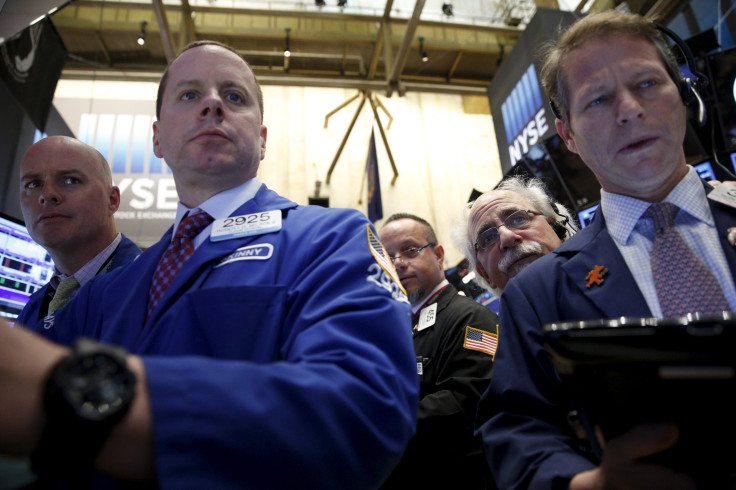Dow Jones Industrial Average Plunges 367 Amid Oil Rout As Stocks Close A Tumultuous Week

The Dow Jones Industrial Average (INDEXDJX:.DJI) closed Friday down 367 points, or 2.1 percent, ending a tumultuous week for stocks that followed Wednesday's historic announcement by the Federal Reserve of the first interest rate rise since 2006. Major indexes ended Wednesday on a positive note, having mostly priced in the widely expected rate hike, but stocks slid Thursday and Friday as global economic concerns roared back into the picture.
The broader Standard & Poor's 500 index (INDEXSP:.INX) closed Friday down 36 points, or 1.8 percent. The Nasdaq composite (INDEXNASDAQ:.IXIC) lost 79 points, 1.6 percent.
Oil continued its recent slide after the Fed's liftoff further strengthened the dollar. West Texas Intermediate crude oil, the U.S. benchmark for oil prices, shed 1.00 percent to $34.60 per barrel. Brent crude, the global benchmark, lost 1.03 percent to $36.68. Crude was joined by tumbling prices in natural gas and industrial commodities, though gold and silver repaired recent losses.
The financial sector posted particularly hefty losses Friday, dropping 1.95 percent as investors eyed further credit losses stemming from the faltering energy sector. Banks are also expecting fewer profitable interest rate hikes in the coming year than they had hoped, partially resulting from oil's drag on domestic inflation expectations. Goldman Sachs dropped 6.74 points for the day, or 3.7 percent, to $175.87.
Investors saw further gloom out of China with the release Friday of the China Beige Book, a quarterly survey of economic activity conducted by a private New York research firm. The report cited "pervasive weakness" in the world's largest economy, with a "particularly disturbing" number of Chinese companies reporting faltering earnings.
Friday saw greater-than-average volumes due to the occurrence of the so-called Quadruple Witching, when all four major indexes carry out their quarterly rebalancing. On average, these days see volumes 50 percent greater than a typical trading day.
© Copyright IBTimes 2024. All rights reserved.












